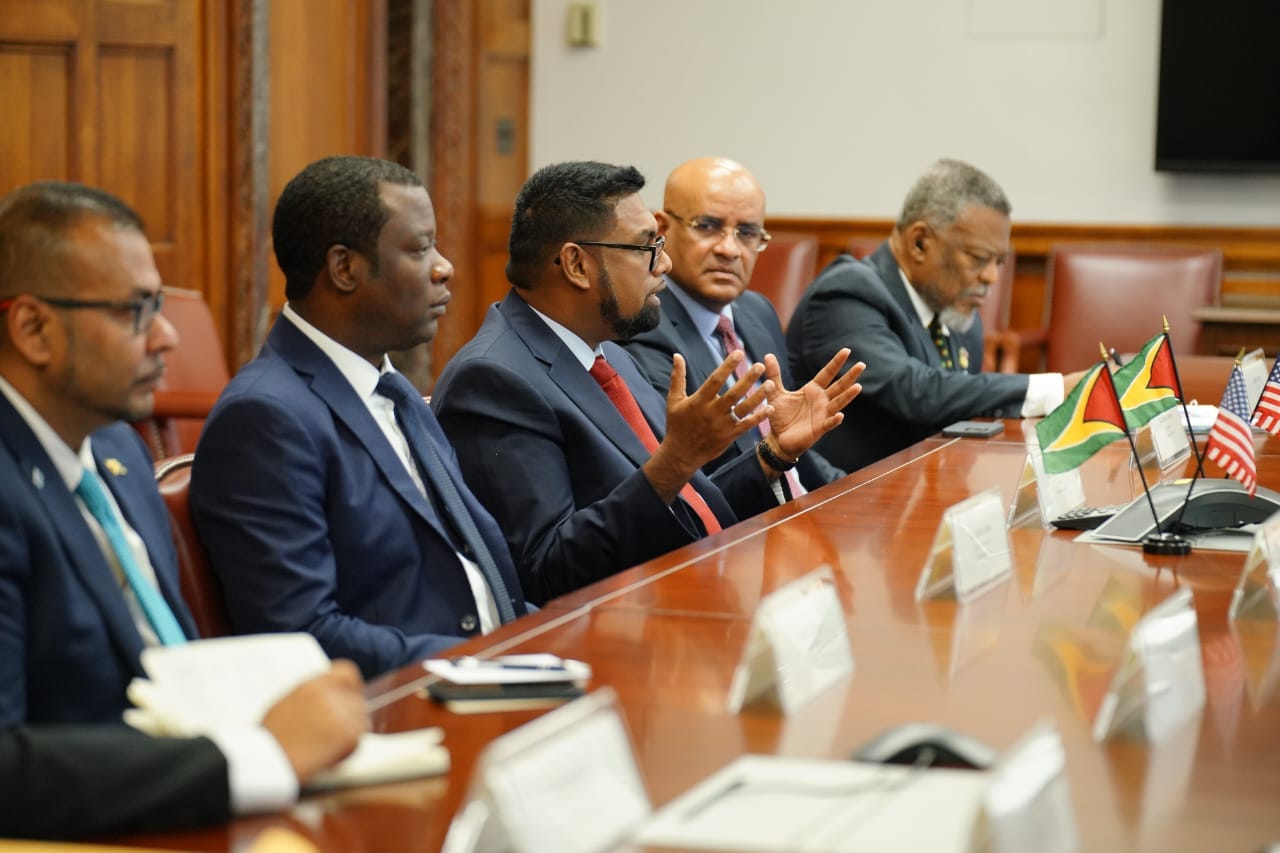As the week-long high-level Guyana-United States meetings continued in Washington, President Dr. Mohamed Irfaan Ali, on Wednesday spoke about the need for a balance between oil and gas development and climate aspirations. In this regard, he reaffirmed Guyana’s commitment to matching its sustainable development with global climate goals.
The Head of State was speaking to members of the United States Centre for Strategic and International Studies (CSIS) – one of the globe’s leading and most influential think tanks. In his opening presentation, Mr. Ali spoke of the golden opportunities presented to Guyana and potential investors, as well as some of the challenges the nation faces, including the climate crisis.
“Every conversation on development and policymaking today cannot be complete without addressing the issue of climate change,” the President iterated to the gathering. “Climate change is not an accident [and] it has to be dealt with in a global policy formation that brings the commitment of everyone. The ending of fossil fuels will not end the climate change crisis. There needs to be a balanced conversation, the conversation and understanding of the reality of the world. Because guess what? When supply becomes low and demand continues to increase, [the] price is affected and the most affected continues to be the developing world.”
The past several months have been a stark demonstration of what happens when oil and gas supply does not meet demand. While producers like Guyana have benefited from high prices, inflation has affected the entire world. And without mechanisms to cushion its impacts, developing countries, especially non-oil producers, have felt the brunt.
Guyana, Mr. Ali said, is a perfect example of a country attempting to strike the balance between the development of its resources – particularly oil and gas – while still fighting the fatal effects of climate change and protecting the environment. In fact, in Guyana’s new and expanded Low Carbon Development Strategy (LCDS) 2030, the nation looks to incorporate innovative technologies and industry-leading policies to reduce emissions from projects.
Some steps that the government has already taken to minimise or curb carbon emissions by offshore production include a no-flaring policy, and a flaring fee in emergency cases of flaring. The government is also looking to introduce the use of carbon capture utilisation and storage (CCUS) technology, renewable energy in oil production and where viable, green hydrogen.
Guyana seeking Exxon’s full support for country’s low carbon push | OilNOW
“The development of our infrastructure and our human resources is a transformation of our country and is an important part of the environmental model. As we move forward with our oil and gas sector we are simultaneously moving forward and advancing our forests as a tool to combat climate change. We’re now moving the LCDS beyond the forests to the ocean and the blue economy. So, our commitment to climate change and sustainable development is unshakable, unshakable,” the President explained.
Wednesday happened to be the first time that the Guyanese leader has ever addressed a CSIS event and referred to it as an honourable opportunity. Founded in 1962, CSIS is a nonprofit policy research organisation dedicated to advancing practical ideas to address the world’s greatest challenges.
CSIS scholars bring their policy expertise, judgment, and robust networks to their research, analysis, and recommendations. The body organizes conferences, publish, lecture, and make media appearances that aim to increase the knowledge, awareness, and salience of policy issues with relevant stakeholders and the interested public. Importantly too, this leading think tank has exerted influence on the White House in areas of foreign policy and defense matters.



